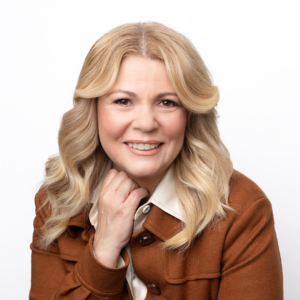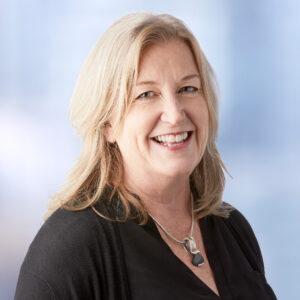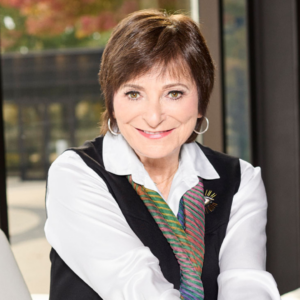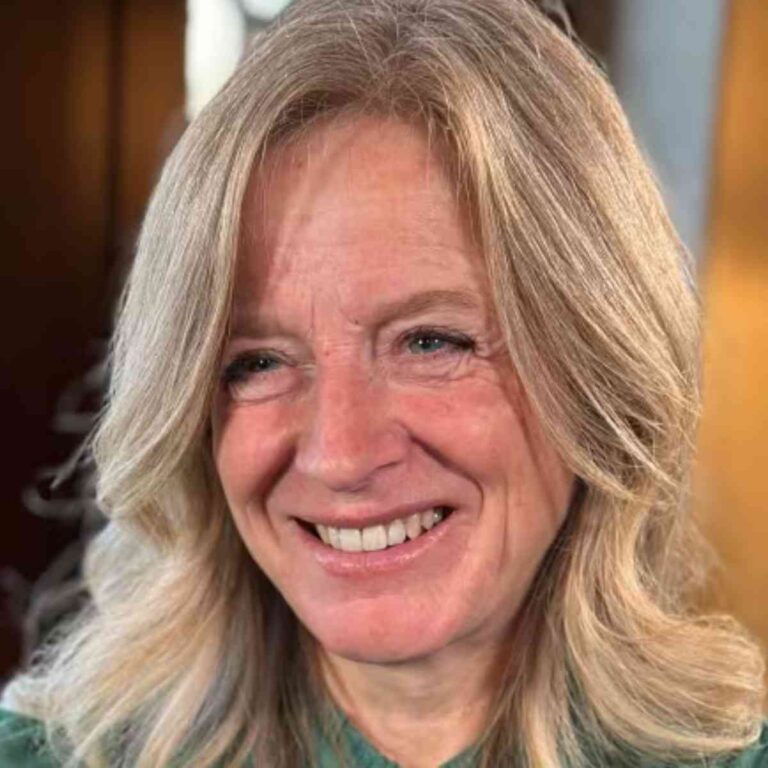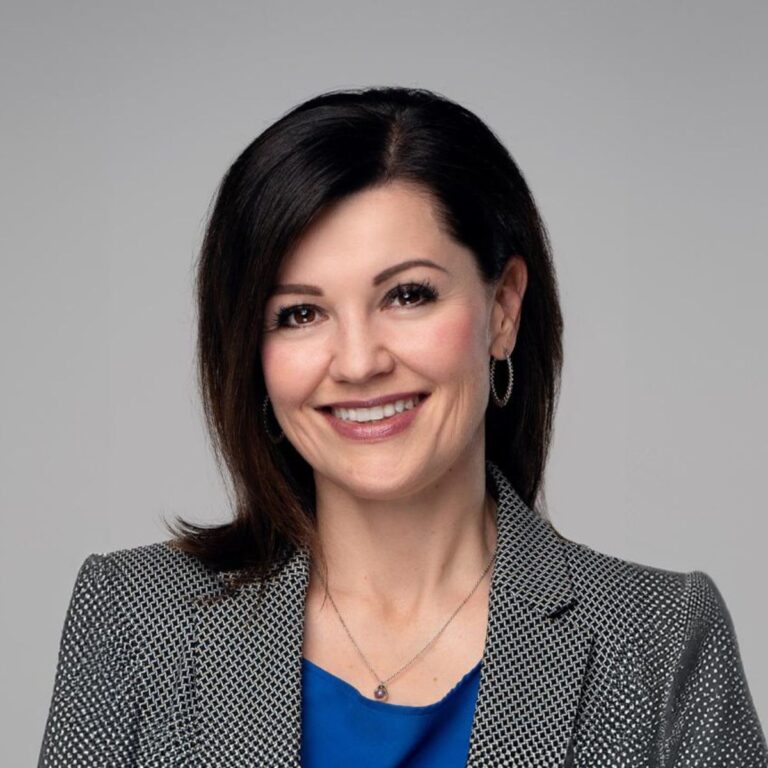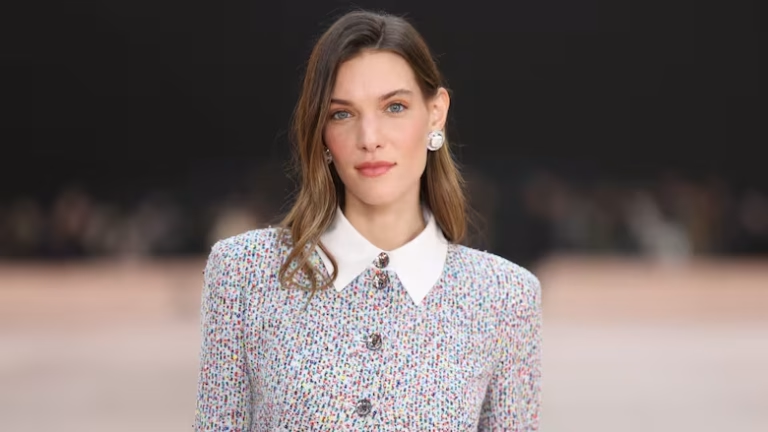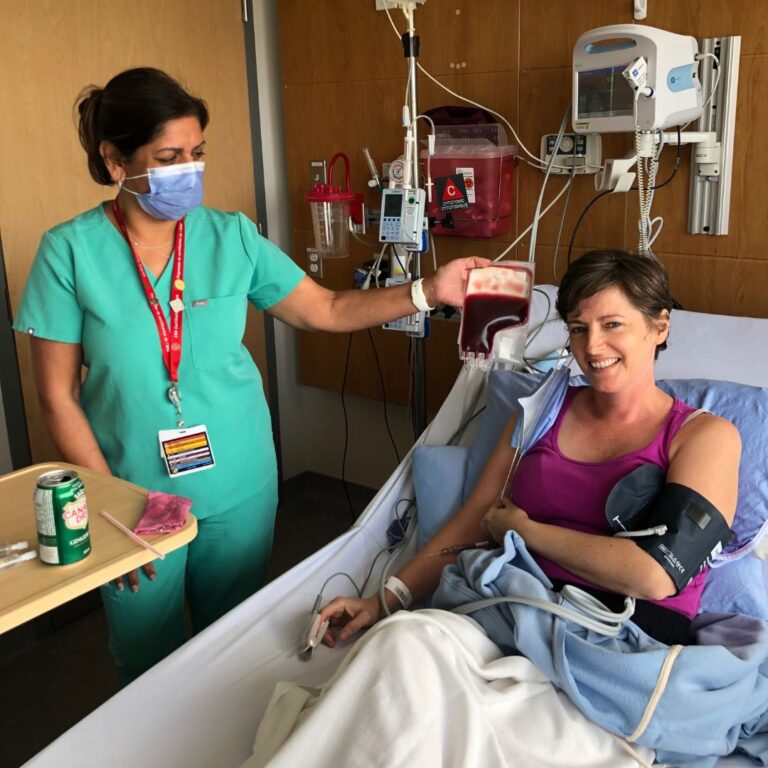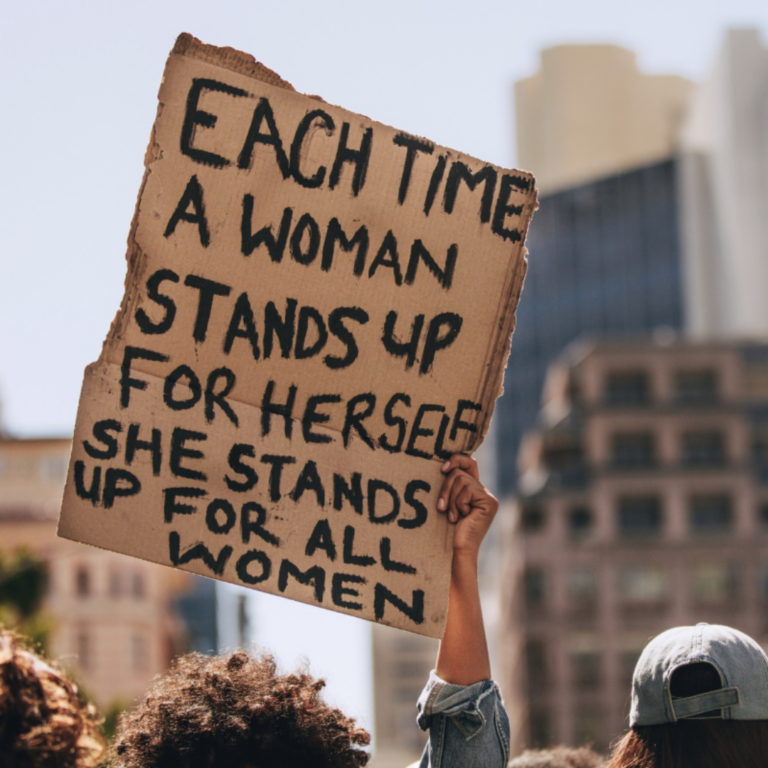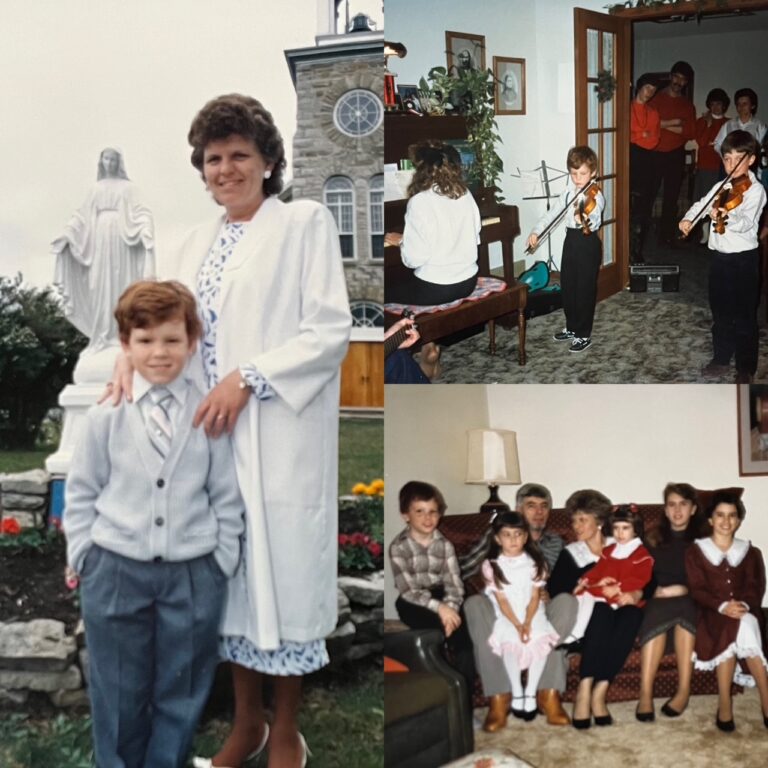Kathleen Wynne – Former Premier of Ontario
Today, we’re having a conversation with a woman who had a trailblazing career in politics: Kathleen Wynne! She served as a school trustee and a Provincial Parliament and cabinet member before she was elected Ontario’s first and only female Premier.
In her conversation with Jen and Catherine, she gets candid about setbacks, progress, and why she still believes in public service despite rising misogyny and political polarization. Tune in for a real, honest talk on resilience, leadership, and never giving up.
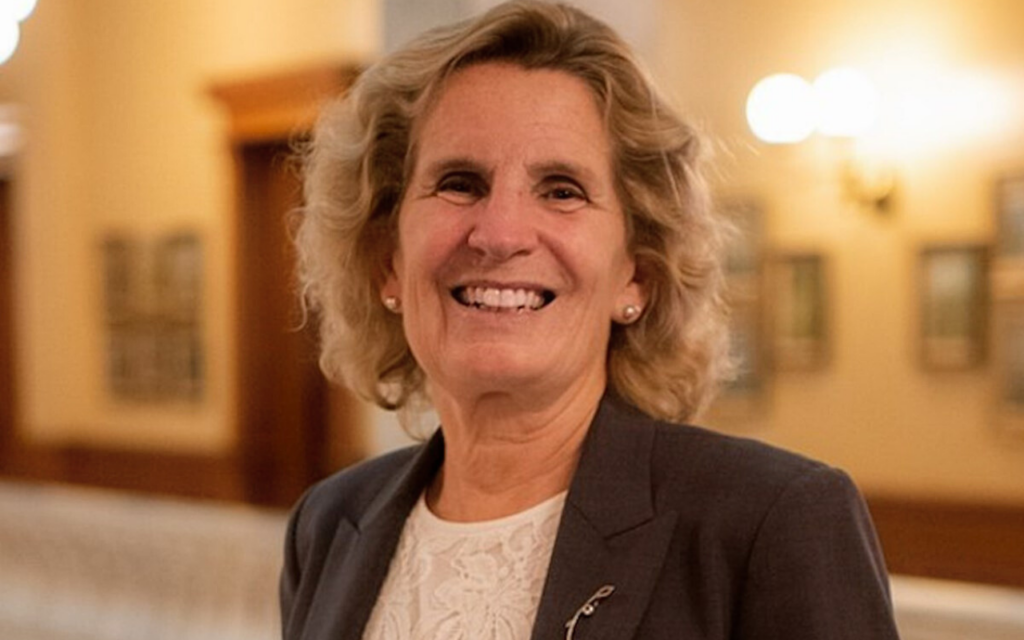
Jennifer Stewart: There’s obviously a lot going on in the world right now. How are you feeling?
Kathleen Wynne: I’m feeling apprehensive. I would say I feel like we’re living in a precarious moment as Canadians – particularly living next to this erratic president. So I think that every day, you sort of wake up and wonder what’s going to happen. I think there’s a song about that, but I feel like I don’t understand the path that we’re on.
And, you know, I was born in 1953, and over my life, I have felt like we’re making progress. We’re moving in a direction where the world is going to be safer, cleaner, more inclusive, more understanding of people with differences and challenges. And now it feels like, for the last few years, we’ve been going backwards on that trajectory.
So, I feel unsettled.
Catherine Clark: If we follow up on that and focus specifically on women – Jen and I both have daughters and sons, and we were raised by mothers who took different career paths but always showed us that what they were doing was paving a better path for us.
Now, when we talk to our moms and other women, there’s this shared sense of regression – like, after everything, how are we still here?
It sounds like you’re feeling that too. So what do we do about it?
Kathleen Wynne: So, I teach a course at U of T in public policy – one in September and one in January. And last year, I did a plenary session with a few of the classes, and I talked about this new permission for misogyny.
Particularly where we are as women, it feels like there is permission from some of the most powerful men in the world to basically turn the clock back on the progress we’ve made — not in terms of the sort of regulation and laws around women’s rights (although the Roe v. Wade decision — the fact that women in America now have much more difficulty accessing abortion and controlling their own bodies — is a huge legal setback). But beyond that, it’s a permission to assert power over women in the public square: in terms of language, in terms of the sort of disdain that traditionally, the establishment has felt for women.
So, yeah, I feel like that’s one of the metrics on which we’re moving backwards.
I think there are others. In terms of work around racism, homophobia, and transphobia, I think we’re taking steps backwards. I’m finding myself being asked to come and delegate to Catholic school boards in Ontario that are moving back on flying the Pride flag. It’s 2025 — these boards have been flying the Pride flag and teaching in an environment where equity policies were accepted. I know, because I was the Minister of Education. And now they’re feeling empowered to move away from that.
So, yes, I feel like I grew up with an expectation that we were going to continue to improve women’s ability not just to compete with men, but to be who they are — to be their whole selves in the world — and for that to be valued.
And I feel like I can’t count on that right now. I have three granddaughters, and I have three grandsons, and I want them to live in a world where that is the norm. And I’m worried that’s not where we’re going.
Jennifer Stewart: What’s your perspective on the why? Why in 2024, 2025 did we take such drastic steps backwards?
Kathleen Wynne: I want to answer that — and you also asked me, what do we do about that? So, back to that as well.
The why? I think there are a whole lot of factors in terms of why people are feeling displaced. And I say that meaning men who grew up expecting that they were going to have a particular position in the world — or they were told that. They were told they were going to have the privileges their fathers and grandfathers had. And then they… they somehow — because the workforce is changing, because we’re living in an era of climate change where there’s a whole economic shift happening — I think there are factors related to traditional roles. Roles that I may have grown up with — your generation wouldn’t have grown up with — but that I did. And people feel angry that those rules have changed.
You know, I think there’s an element of men my age, and maybe the next generation, feeling like they don’t know what the rules are supposed to be — and there’s an anger associated with that.
But I also think — when I mentioned climate change — when we watch Los Angeles burning, or B.C. burning, or flooding in Northern Ontario, I think all of that creates an uncertainty about what the future holds. And that makes people anxious. Sometimes it makes them angry, because that’s not what they expected growing up. They thought — we thought — we were going to have this sort of infinite ability to improve and have prosperity without doing anything, without taking any responsibility for our actions. So I think that’s all at play right now.
I also think that general economic uncertainty, caused by all of that, makes people anxious. It makes them retrench and look for some sort of simple solutions. And so when you have somebody like Donald Trump — or even in Canada, Pierre Poilievre — handing out simple solutions to complex problems, people grab onto that and run with it. And sometimes, those are very angry, dangerous movements.
You know, we look at the convoy in Canada — the anti-vaxxer movement, the lack of respect for science — that reaction against information and evidence… I think that’s part of this disenchantment we’re dealing with.
So — what do we do about all of this?
I think we do this. I think we find ways to talk to each other. I teach a couple of courses. I feel like I want to work with young people. I want to give them a sense of what it’s like to be in politics, what the choices are, and why it’s important to be involved. And whenever a group of high school kids asks me to come and speak, I go — because I think it’s very important that those of us who’ve been in decision-making roles, or who have platforms, use those to try to provide some context for what kids are seeing on social media right now.
Catherine Clark: So if we take all of that and put you in the classroom — in front of high school students or a university group — what are you telling them about why it’s important to get involved? And specifically, what are you telling the young women?
Because it’s an ugly time in politics — especially for women. We’ve published articles quoting Members of Parliament who are literally leaving because of the aggression and fear for their safety and that of their families.
So what do you say to young people about why this is still a profession worth choosing — and why it’s important to be there?
Kathleen Wynne: Well, yeah. And you know, when I was in office — I was in office for 22 years as a school trustee and then MPP — and, you know, throughout that time, really starting from the beginning, because I am a lesbian and I was, you know, running through a school board, and there was a whole lot of homophobia. And then as social media took hold throughout my career, it became more challenging to walk into crowds and to not be accosted. And there were death threats against me. There were challenges against my kids, you know, so I’ve experienced that, and it is very, very unpleasant.
But what I talk about with young people is what we as a team — because you don’t do politics by yourself — what we as a team were able to accomplish. You know, the changes that we made that allowed more kids to go to post-secondary, that allowed people to earn a better living wage, to — you know, we put more supports in place for violence against women. Those kinds of changes that we made when I was in office.
And then we talk about what it’s like to actually run for office, and how you cope with that: by having a team around you, and by having to learn to compartmentalize the negativity that comes at you. But at the same time, I always talk about having people say, “You must have tough skin.” Well, I don’t say to people, “You have to have thick skin.” What I say to them is, “You have to have porous skin.”
You know, you have to let enough in that you know what’s going on in the world, but you also have to protect yourself from some of that.
I think the most important thing is to have people around you who you trust, to go into politics because you want to do something — as opposed to wanting to be famous or have power — because those things, those aren’t real, those are ephemeral. And so having a mission, having an idea of what it is you want to accomplish, is really, really important. And then understanding that you’ll accomplish some of it, and you won’t accomplish all of it.
If good people don’t get involved, then we have to throw up our hands and say we’ve given up. And I’m not prepared to do that, you know? I just believe that. I believe that there is so much possibility in human nature — whether it’s in Ontario or whether it’s Canada or whether it’s in the world — I believe that it is worth getting involved and bringing people with you.
Jennifer Stewart: So, speaking of not giving up — you became a provincial cabinet minister and then Ontario’s first and only female Premier. But your path to victory wasn’t always clear. You ran a couple of times for various positions and weren’t successful at certain points in your career.
What motivated you to keep trying? Because a lot of people run once, they’re not successful, and they move on.
Kathleen Wynne: It’s such a great question, because it is so much a part of what I believe many political stories tell.
So in 1994, I ran for school trustee in North Toronto, and my kids were quite young, and my partner, Jane, and I had been together for about four years, and there was a lot of homophobia in that campaign. There was homophobia in every campaign that I ran, but there was a lot of homophobia in that campaign.
But the thing about that campaign that was wonderful for me was that I discovered how much I loved the process, you know? So it gave me permission to walk up to someone’s door, knock on their door, and have a real conversation about education, their children’s future, what was going on in the community, you know? I absolutely loved that.
I lost that election by 72 votes. And what that did for me was it showed me I would live if I lost, you know? I was devastated the next day — I can remember — just because we’d worked really hard. But it showed me what the process was like, and it showed me that you pick yourself up and you carry on. It also showed me that you had to have a plan B. You could never count on winning, you know. And so that was a real gift, because losing at the beginning of your career — it gives you strength. It gave me strength to be able to carry on, because I knew if I lost the next one — which I did — I ran for a Liberal nomination in ’99 against Michael Bryant. Lost that one too.
But each time I did this, I was learning things. You know, I remember in ’99 at that nomination, Sheila Ward, who was one of my mentors — she’s no longer with us — but she was this crusty old, salty backroom politician from Regina, and she had been a school trustee for years in Toronto. Anyway, she was kind of running my campaign, that nomination campaign, and I remember when the vote came in and Michael Bryant had won, she stood beside me and she said, “Okay, sweetie pie, you got to go up on the stage, and you got to make it unanimous, and you got to be a happy warrior,” you know.
And I was devastated for all sorts of reasons, but I went up on stage, and Michael Bryant and I became friends. I hosted a fundraiser for him the next day — the party asked me to introduce him at a fundraiser the next day — and all of those things helped me tap into my strengths, you know, and helped me learn about what it was like to be in that public realm, to not be the top of the heap, to have to kind of swallow my pride and take another step forward. And that was all so invaluable as I went forward.
So I always recommend that people lose first and then win later, because it is more fun to win — but there’s so much to be learned from losing. And you know, when you think about the hundreds of people who put their names on the ballot in every single election, most of them lose. So you’ve got to learn from the process, and there’s got to be a reason to be in the race.
So, for example, in 2012 when Dalton McGuinty stepped down — yeah, 2012, because I won the leadership in 2013 — but in 2012 when he stepped down, there was a whole question for me around whether I would put my name into the leadership, you know? Because the odds-on favorite to win was Sandra Pupatello. People did not expect me to win.
And so I fully expected that I was going to go into this process — if I did — and not come out on top. And so I made a decision with Jane that it was worth it to be in the debate. You know, that it was worth it to have my name in the debate and to have my voice in the debate, because that would change the nature of the conversation.
And I, you know, I have said that to many candidates over the years — you know, are you going to regret it if your voice is not part of the discussion? And if you are going to regret it, then go for it, because that means you’ve got something to offer, and you’re going to change the chemistry of the conversation.
So I think that is as much a part of the process as winning — if not more.
This is a condensed version of the original interview transcript, edited for length.
